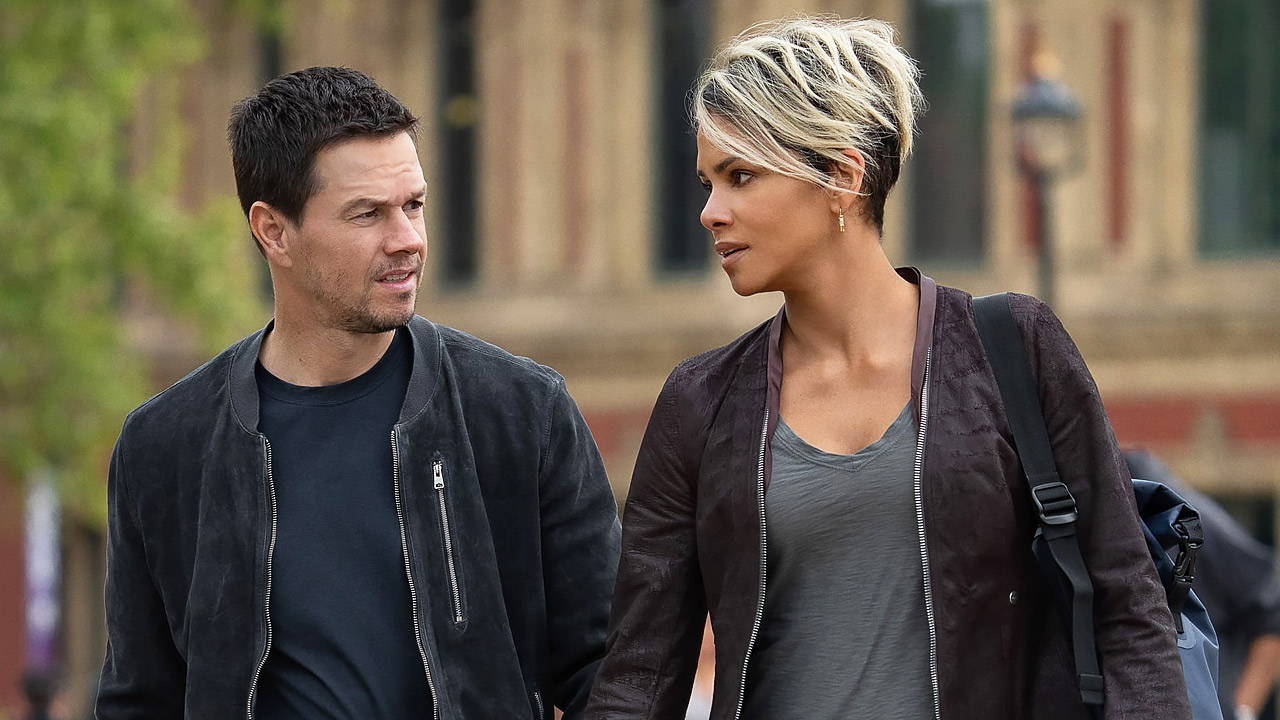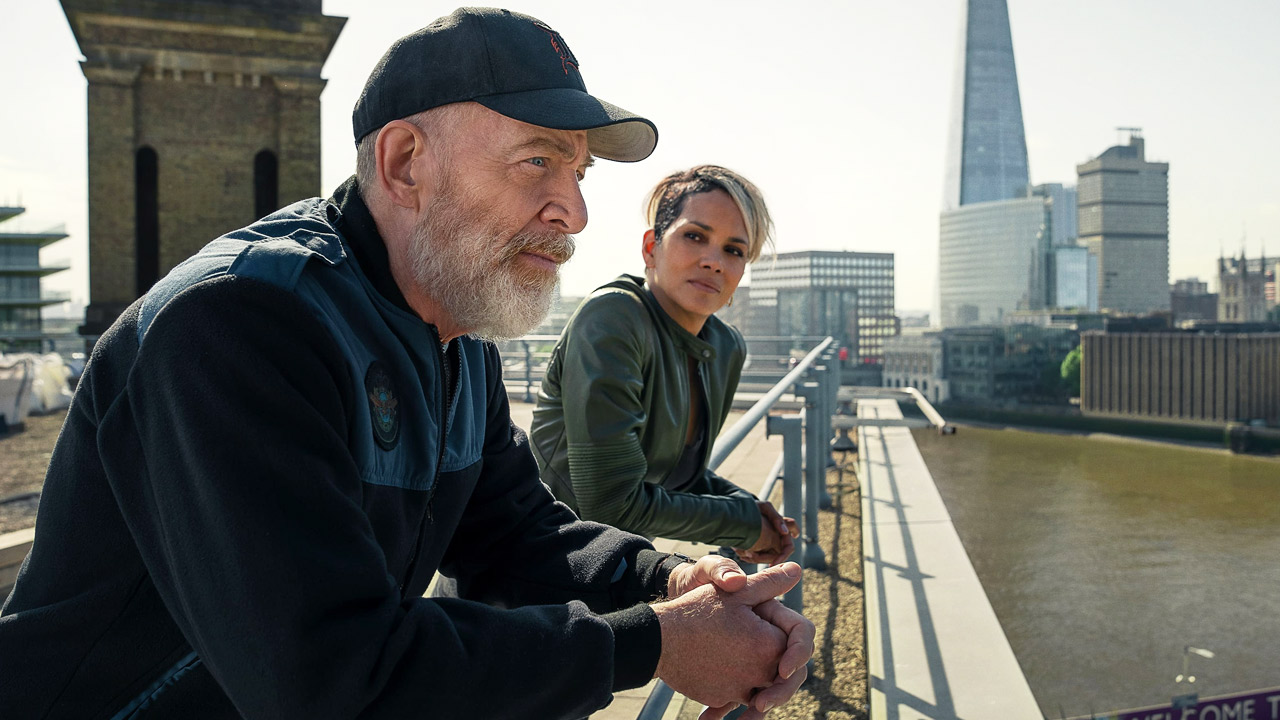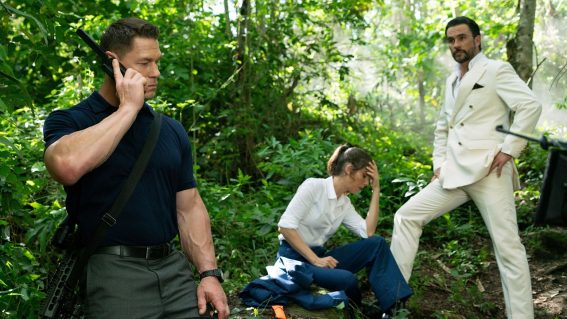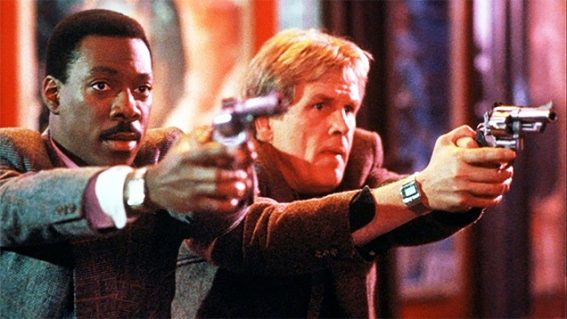The Union totally abandons its one interesting idea

Mark Wahlberg plays the reluctant hero of Netflix’s uninvigorating action movie, which raises an interesting idea then jet packs away from it, writes Luke Buckmaster.
You know that top secret organisation that regularly saves the world, but never gets credit for it? Of course you do. This is the IMF, which deploys Ethan Hunt and disavows all knowledge of his shenanigans; this is Kingsman, which believes existential threats are no reason not to look dapper; this is the alien-fighting outfit Men in Black, which markets itself with a fun jingle. And now it’s the titular organisation in Netflix’s The Union, which purports to be an “invisible army that keeps the world running.” However the group feels more focused on reissuing moth-eaten action movie concepts, including scenarios injected with dialogue like “we’ve got company!” and “someone knew we were coming!”
The screenwriters (Joe Barton and David Guggenheim) sew together a Frankensteinian plot from the limbs of countless productions about average Joes rising to an extraordinary challenge. Here it’s Mark Wahlberg’s construction worker Mike, a down-to-earth New Jerseyan who likes sports and beer. He can’t believe his luck when his high school sweetheart, Halle Berry’s Roxanne, unexpectedly enters his local watering hole and, after some chit-chat, suggests they take the night “somewhere else.” But outside, instead of kissing him back, Roxanne injects him with a tranquiliser. Next thing Mike knows, he’s in London, listening to a spiel about how he’s the perfect addition to a secret organisation facing its greatest challenge yet.
Narratively speaking this challenge is resolutely unimaginative, involving protecting a hard drive that contains the names of every spy in the history of western civilization. To succeed The Union need the help of someone outside the system: “basically, we need a nobody,” says Roxanne. In the generic scenarios that ensue, Mike embraces his new-found hero status unusually quickly while director Julian Farino stylessly ticks the requisite boxes—labeled “car chases,” “shoot-outs,” “surprise villain” etcetera.
The film’s most interesting idea by far is introduced just after Mike arrives in the Big Smoke. The boss of The Union, J. K. Simmons’ Tom Brennan, monologues about the bedrock principles and distinguishing features of the organisation. Rather than consisting of fancy-schmancy elites, with their money and privilege and great watches, he explains that its members are drawn from the hoi polloi, emphasising “street smarts over book smarts” and “blue collar, not blueblood.” He says their operatives are “the people who build our cities, keep our production lines humming” and proudly declares that “nobody ever handed us anything a day in our lives.”

This is an intriguing counter to the dominant depiction of secret, world-saving organisations consisting of “best of the best” types who have no problem dressing black tie and understand second-naturedly what a perfect martini tastes like. When we’re introduced to Jackie Earle Haley’s computer whiz—you know the character: a tech genius behind a wall of screens—we learn that his name, the Foreman, isn’t a codename. In his previous job this guy was actually a foreman and a forklift operator.
How, I wondered, would the film make good on its promise to deliver hard yakka working class heroes, when the concept of an elite secret organization obviously lends itself to exclusivity, wealth and privilege? Will we get to see operatives hanging out at the pub, drinking suds and chewing the fat, after a busy day jumping from moving vehicles and punching terrorists? Will we see them returning home to the burbs, pretending to have normal lives, attending minor league baseball games and grousing about the cost of living?
Sadly, no. There’s none of that. After introducing this idea, Farino and the screenwriters more or less ignore it altogether, offering practically nothing in the way of elaboration or explanation. What gives? It’s possible the original script offered more proletariat elements and was watered down—but this is hardly a film that screams “great art compromised by the studio.” And one imagines that Wahlberg (also a producer) would’ve liked these elements, having carefully cultivated a working class persona. It just doesn’t make any sense: an interesting idea raised and then abandoned, lost in a sea of algorithmic set pieces.



















